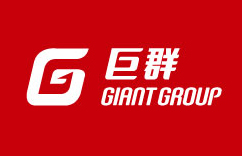2016-07-25
Symposium on Best Practices for Stemming Digital Piracy, Inspiring New Thinking!Symposium on Best Practices for Stemming Digital Piracy, Inspiring New Thinking!
On July 26, 2016 Symposium on Best Practices for Stemming Digital Piracy was cohosted by TIPO, AIT, and Graduate Institute of Technology, Innovation and Intellectual Property Management (TIIPM) of National Chengchi University (NCCU). Mr. Danny Marti, U.S. IPEC Coordinator, shared the U.S. experience in IPR enforcement. To devise an evolutionary strategy to combat digital piracy, a representative from TIPO delivered the latest development in copyright legal regime, and ad networks and payment providers presented their practices for online copyright protection by stemming the flow of funds. The Symposium was attended by over 200 people, including officials from government agencies and representatives from technology industry, law firms and universities.
In this Symposium, Vice Minister WANG Mei-hua of the Ministry of Economic Affairs (MOEA), who led TIPO as Director General, delivered opening remarks. Vice Minister WANG has perceived the importance and complexity of the Copyright Act. During her tenure, Ms. WANG was dedicated to carrying out the Copyright Act Amendments. She particularly concerned with the future development in TIPO’s copyright legal regime and enforcement, as well as how it will work with private sectors to fight against copyright infringement.
As technology progresses, mobile communications, online streaming, and cloud services are becoming the primary channels for use of copyrighted works. The Internet serves as a borderless platform for creators to showcase their creations, while also allowing people to easily access such works. The complexity of internet affects not only the rights and interests of economic right holders, users, and ISPs, but also those of online advertisers and e-payment service providers. The Symposium explored feasible solutions to collectively solve indirect stakeholder-level problems, such as preventing capital flow towards digital piracy. It also provided stakeholders with an opportunity to exchange views on how to establish a sound copyright regime in Taiwan and how to create an optimal environment for copyright protection and use. In all, the event facilitated collective brainstorming to effectively deter Internet copyright infringement.
